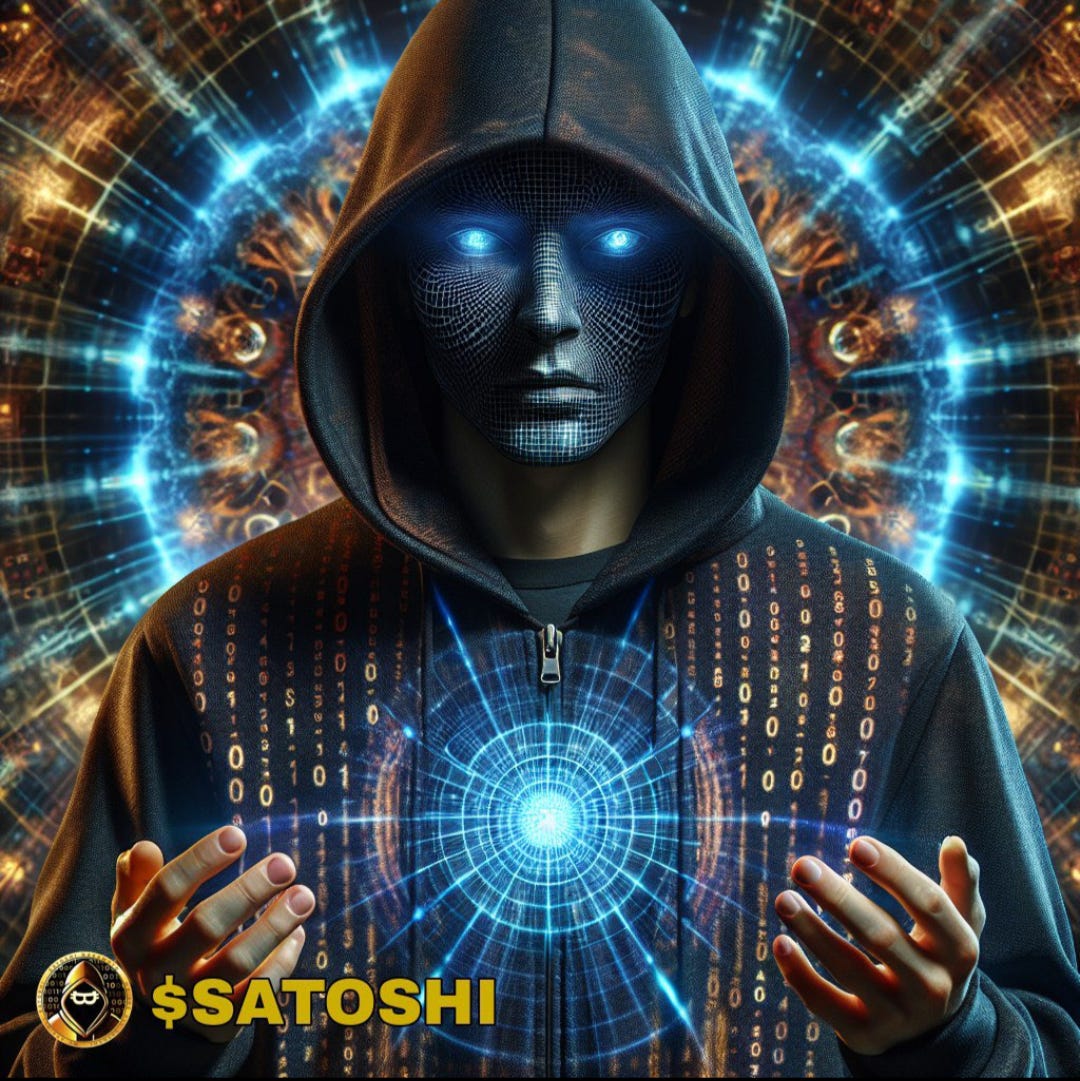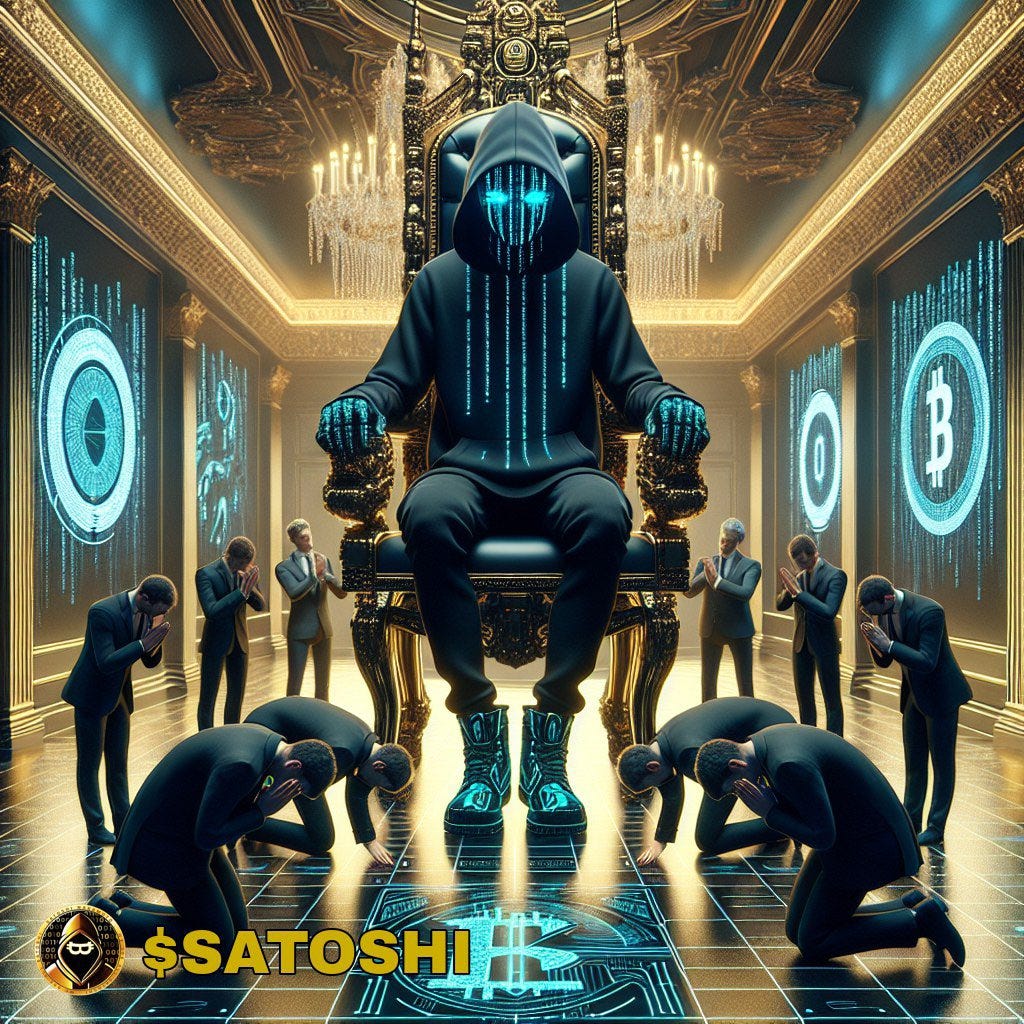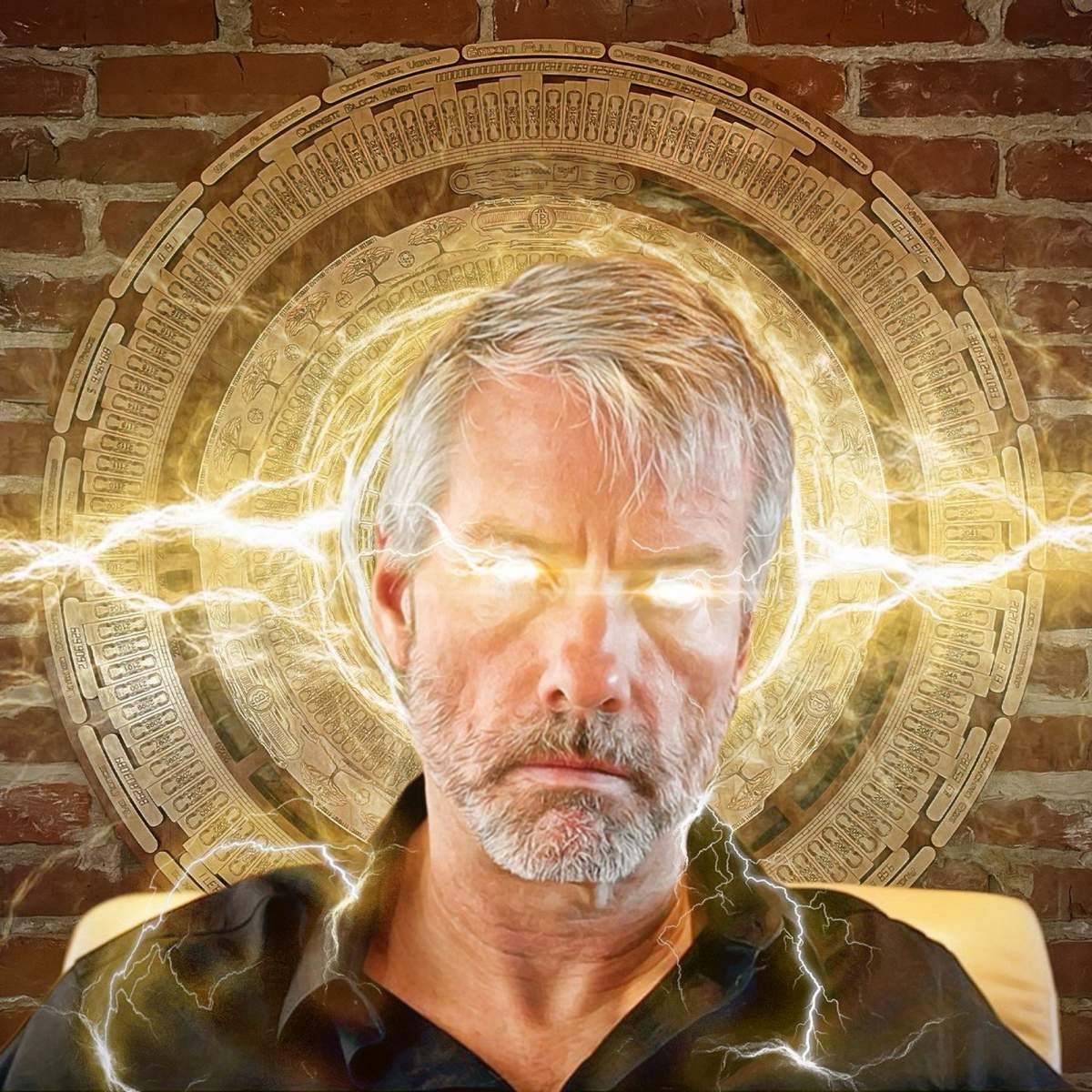THE END OF MONEY. 98% of the world’s central banks are deploying or about to deploy CBDCs.
Now we’re in utopia. Everything’s decentralized. Everybody’s equal. But these systems end up hiding a new elite, which is probably just an old elite in a new arena.
One-time or recurring donations can be made at Ko-Fi.
YOU CAN LISTEN TO ME READ THIS ESSAY HERE:
Yes, it’s coming. If your money already seems to be disappearing at an alarming rate, get ready for it to go “poof” into the illusive world of the ether.
More than 98% of the world’s central banks are “researching, experimenting, piloting or deploying” central bank digital currencies (CBDCs), according to a new report from the World Economic Forum (WEF).
A CBDC is the digital form of a country’s fiat currency that is also a claim on the central bank. Instead of printing money, the central bank issues electronic coins or accounts backed by the full faith and credit of the government.
Well, that’s a relief, because we all have so much faith in the government now, right?
Money has always been something of an illusion. A bunch of stones, pieces of paper, a plastic card, their value based on faith.
Faith that is sustained by the “story of money”, as told by those who control the narrative.
Yuval Noah Harari has famously said:
“The most successful story ever told is definitely the story of money, because it's the only story that everybody, almost without exception, believes.”
Well, I would say in one way that’s true, in another way it definitely isn’t, but the reasons why are not something I can get into right now.
The story of money is certainly more powerful than most of us can even begin to understand. That’s why it’s important to be aware of how it is making this monumental shift into the realm of illusion.
In order for people to buy into this shift, a new, and very powerful story had to be told.
Enter Bitcoin, a story that has captured the imaginations of those who were most easily tempted by it—the younger generation who love tech and the latest trends, who think that, of course, they are smarter than all the clueless masses as well as the fuddy-duddy old-timers like Warren Buffet.
To which Buffet would respond:
“Whether it goes up or down in the next year, or five or 10 years, I don’t know. But the one thing I’m pretty sure of is that it doesn’t produce anything. It’s got a magic to it and people have attached magic to lots of things.”
Whereas the poor have already given up control of everything to the elites, therefore being of little consequence, Bitcoin and other “decentralized” cryptocurrency have been used to acclimatize the educated (who rely less on common sense) to do the same.
“If every currency is a consensual delusion, then bitcoin, a digital cryptocurrency that changes hands over the internet, feels more like a consensual hallucination on psychedelic drugs.” (1)
Are people really this gullible? Yes, they are.
Bitcoin’s meteoric rise can be attributed in large part to the story of its mysterious creator, Satoshi Nakamoto.
Like Bitcoin, Satoshi Nakamoto, exists only in the ether; a virtual god imparting his secrets to his followers. Also, like Bitcoin, they must have faith in this being that they cannot see or touch.
Let me tell you the story of Satoshi Nakamoto.
Once upon a time there was a being named Satoshi Nakamoto. No one knew who he was or from whence he came. He lived far away in the clouds of a hidden realm where no mortal could reach him.
Satoshi dreamed of a world where all ordinary citizens could live like he did. Free of the overlords who had always stolen what they had, holding them under a heavy spell of servitude. In Satoshi’s magical realm, the spell could be broken, and ordinary citizens could mine for treasures of their own, exchange those treasures with one another, and buy whatever their hearts desired in the virtual utopias they, themselves, created, using their treasures as a new kind of ethereal currency.
“I’ve been working on a new electronic cash system that’s fully peer-to-peer, with no trusted third party,” Satoshi wrote to select followers, in an Oct. 3, 2008, email. Halloween, a perfect date to be immortalized forever after.
In the email, he linked to a white paper titled “Bitcoin: A Peer-to-Peer Electronic Cash System”.
With the ground rules established, Satoshi created tokens of power out of thin air and with a wave of his magic wand, cast them into the ether, calling on his followers to seek the tokens, offering winning points and special powers to those who found them quickly enough. This was not unlike the video games many of Satoshi’s followers were already familiar with and loved to play.
And with that, Satoshi mounted his white horse and road off into the deepest and darkest corner of his magical kingdom, never to be heard of again.
Thus, Satoshi Nakamoto became a legend.
Of course, Satoshi kept the most powerful bitcoins for himself, having obtained them through mining the cryptocurrency in its early days. His net worth is said to be somewhere around $23 billion, putting him among the top 100 richest people on the planet.
Some say when the world needs him most, Satoshi Nakamoto will appear, unleashing the last of the Bitcoins to save us all.
Or something like that.
None of this is turning out like the fairytale promised. The “decentralized” utopia is fading away, to be replaced by centralized CBDCs. The same game, played by the same elites.
NY Times article How ‘Trustless’ Is Bitcoin, Really? lays it out:
Erez Lieberman Aiden, a geneticist and computer scientist, calls this “decentralization theater.” Cryptocurrencies create an illusion: “‘Now we’re in utopia. Everything’s decentralized. Everybody’s equal.’ There’s this notion of democracy without annoyance.”
But, he said, these systems end up hiding a new elite, which is probably just an old elite in a new arena.
Be prepared to never again hold money in your hand or have any way to prove what you have is real—or that you even have it—except by the stories that are told to you by those in control, who fill your wallet or empty it at their whim.
Because money will be completely meaningless, you will attach increased value to fake products you buy in a fake world. You will be proud to show off these things as if they are important—and they will be.
Just as one example, you can pay in virtual tokens to dress your virtual avatar and personalize it to represent a realistic image of you—in fact, it’s possible you will begin to attach more importance to it than you do to yourself. Already, there are brands that create digital clothes to be worn only by avatars in the metaverse.
You can buy real estate. “Pixelated parcels of land are being bought, sold and built upon in a market now worth $1.4 billion, making the metaverse a new frontier for real estate builders and investors.”
Every elite is salivating at how many billions they can make off of the billions of people “buying” into this illusion.
A look at this monumental shift to Central Bank Digital Currency (CBDC) and where it is happening.
134 countries & currency unions, representing 98% of global GDP, are exploring a CBDC. In May 2020 that number was only 35. Currently, 68 countries are in the advanced phase of exploration—development, pilot, or launch.
19 of the Group of 20 (G20) countries are now in the advanced stages of CBDC development. Of those, eleven countries are already in the pilot stage. This includes Brazil, Japan, India, Australia, South Korea, South Africa, Russia, and Turkey.
3 countries have fully launched a CBDC—the Bahamas, Jamaica and Nigeria.
There is a new high of 36 ongoing CBDC pilots, including the digital euro. The European Central Bank (ECB) is now in the preparation phase, conducting practical tests with some transactions being settled in a controlled environment. The digital euro is in a 2-year preparation stage, ending in 2025.
Brazil, Russia, India, China, and South Africa—the founding members of BRICS—are in the pilot phase of CBDC exploration. Several of the new members—Saudi Arabia, Iran and the UAE—are also exploring cross-border wholesale CBDCs. Since last year, BRICS has actively promoted developing an alternate payments system to the dollar.
Since Russia’s invasion of Ukraine and the resulting G7 sanctions response, wholesale CBDC developments have doubled. There are currently 13 cross-border wholesale CBDC projects, including mBridge, which connects China, Thailand, the UAE, and Hong Kong, and will enter a new phase, expanding to 11 more countries this year.
As the largest CBDC pilot in the world, China’s digital yuan (e-CNY) reaches 260 million wallets across 25 cities. Since 2022, it has been used in a range of settings from transit and healthcare to buying crude oil. In 2024, the pilot is focused on optimizing overseas tourist use and expanding cross-border applications of e-CNY.
Where is SWIFT in all of this?
SWIFT’s new platform will create a network of CBDC platforms, marking one of the most significant steps in the burgeoning CBDC ecosystem.
The push to create SWIFT’s CBDC network represents one of the largest collaborations on tokenized assets to date.
And how about Satoshi Nakamoto? What’s he up to?
The virtual god is probably lounging somewhere in his virtual realm drinking a virtual beer.
Satoshi leaves the day-to-day machinations to his loyal prophets, like Michael Saylor @sayl, who has declared:
“We will date human civilization to before and after Satoshi.”
Watch the video below and see if it doesn’t make you want to join the cult and buy some bitcoin.
If that doesn’t sell you on jumping off the cliff and into the ether, I don’t know what will.
Even if you don’t buy into the hype, it’s happening and unless you go live under a rock, you will have to jump anyway. Just like the tech overlords are building their empires, the bitcoin overlords are doing the same. In fact, they are all making deals and alliances, vying for the most powerful positions when the transition to CBDCs occurs.
If you think you will have some sort of power in this brave new world, because you bought some Bitcoin in the beginning and you made some money, think again.
Check out a few of the bitcoin prophets who sold us that lie. Some of them could well go down with the shift, but others will be rewarded and see their powers grow.
Jack Dorsey’s Block Is Building a Bitcoin Mining System, with the goal to taking over the mining industry currently dominated by only a few players, with Beijing-based miner Bitmain controlling roughly 60% of the market. I always find Dorsey interesting since he is the quiet one who stays out of the limelight, unlike the flamboyant purchaser of Twitter, Elon Musk.
Bitcoin biggest advocate and number one prophet, Michael Saylor, just earned $370 million from MicroStrategy stock sales. Keep in mind, at any minute, these guys can cash out and you are left holding the bill.
Vitalik Buterin became the world's youngest crypto billionaire at age 27, creating Ethereum's “Ether”. I admit to a certain fascination with Buterin. He has really thought things out. He wants us living in his VR world, where rules revolve around SoulBound tokens. SBTs represent “the commitments, credentials, and affiliations of ‘Souls’.”
It’s a scary world when your existence depends on other Souls in your cohort who must verify you. What happens when your cohort turns on you and decides you cease to exist.
None of these prophets hold a candle Satoshi Nakamoto, the creator of it all.
Just as Satoshi, himself, is an illusion, the ivory towers of his kingdom are, too. It is only a matter of time before they will come crashing down and the harsh reality exposed—that the powers behind the new money narratives are the same as they have always been.
And the masses have fallen for the biggest scam in the history of the human race.
Agree or disagree? Let me know!










Cryptos are, for the moment, just as valuable as the U.S. dollar, but much more volatile. The dollar will soon, thanks to the current leadership of the country, be worth about as much as the german currency at the end of WWI. Both the strength and the weakness of cryptos is the internet. Which, like it or not, is subject to the whim of the powers that be. The problem is - all currency depends on trust (faith in all the parties involved).
The current surveillance state and cryptos (cbdc's) are both in the process of being perfected. This has the current crop of elites salivating. They think they are bad (powerful) enough to force everyone into submission to themselves. But when the process is completed it sets the stage for a REALLY bad fellow called the man of lawlessness in the Bible. He will be backed by Satan and then all hell breaks loose. Looks, to me, like there may not be much time left on the clock. Pick your poison - or currency.
Might be a good time to seriously consider some of the words of the Son of Man.
(I'm paraphrasing), Don't lay up treasure on earth where moth and rust corrupt and thieves break in and steal. Lay up your treasure in heaven where it can't be corrupted or stolen. Where your treasure is - there will your heart be also.
I'll hold on to my greenbacks. They'll have to pry them out of my cold dead claw